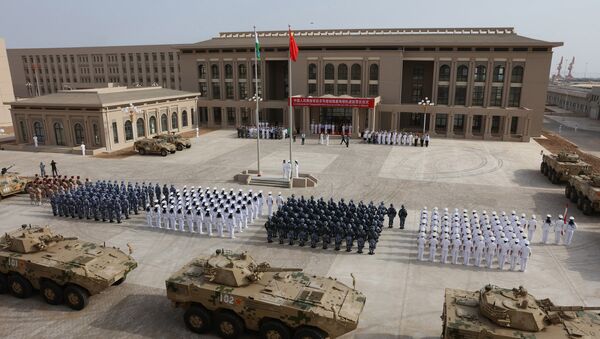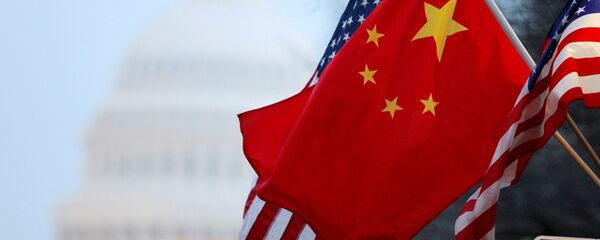The US-China Economic and Security Review Commission, a bipartisan congressional panel charged with monitoring the security implications of US-China trade, has released a new report accusing China of using its Belt and Road Initiative development strategy as an excuse to establish military bases in other countries, Reuters reports.
China's strategy, adopted in 2013, led to the creation of a $5 trillion infrastructure and investment fund for Asia, Africa, the Middle East and Europe. In September, Chinese President Xi Jinping committed some $60 billion in development aid and investment financing for Africa. In 2017, China established its first military base abroad in Djibouti, northeast Sub-Saharan Africa. For the record, the US has bases in at least 20 African countries, including Djibouti.
According to the congressional panel, Congress should create a special fund to compete with China in countries where Beijing is "expanding its influence", especially in the Indo-Pacific region.
The commission also claims that China is using its road, highway, bridge, and port investments not only to "encourage and validate authoritarian actors abroad", but of exporting technology standards which may threaten US companies' market access.
China welcomes US investment and other assistance in projects in these countries, Hua said, assuming that US intentions are "pure". "We hope that when the US does this, their intentions are pure and the results are good," she said.
The panel also warned that in the US itself, China's lead in 5G wireless technology is increasing the risk of cyber-attacks against US interests. "US telecommunications' providers' reliance on imports from China raises serious supply chain concerns about the secure deployment of US critical next generation telecommunications infrastructure," its report noted.
Relations between China and the United States took a turn for the worse following the introduction of several rounds of tariffs by the Trump administration affecting $250 billion in Chinese imports, as well as tensions in the South China Sea, where US warships have been holding 'freedom of navigation' missions to challenge Chinese territorial claims in the sea zone.
Chinese officials and media have yet to respond to the US VP's latest remarks, but have previously argued that his hostile attitude toward China was based on "fallacious" grounds. US officials have repeatedly criticised China over its foreign investment and trade activities, with Secretary of State Mike Pompeo accusing Beijing's moves in Latin America of being "inappropriate" and "predatory". China called Pompeo's remarks "ignorant and malicious", stressing that it was looking to create a model of "win-win cooperation" in international trade.




